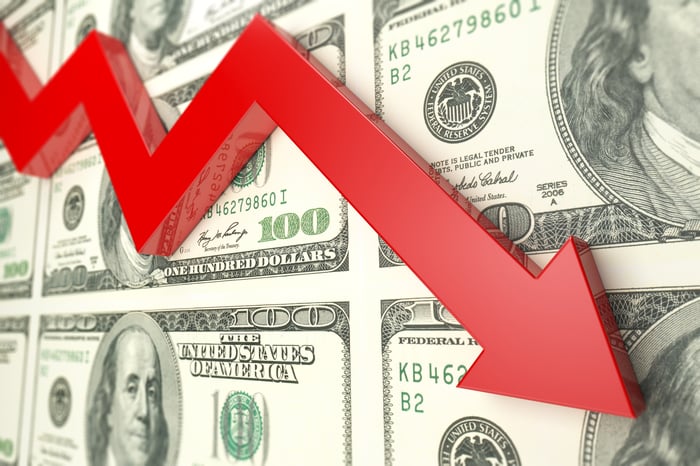What happened
Shares of renewable fuels company Gevo (GEVO 1.31%) crashed in early trading Wednesday, falling 14.3% by 10:40 a.m., and Gevo has only itself to blame.
This morning, in an 8-K filing with the Securities and Exchange Commission, Gevo announced that it has amended a 2018 agreement providing for the issuance and sale of new stock "at the market" price to permit creation of new shares worth up to $150 million in total.

Image source: Getty Images.
So what
At current market prices ($4 or thereabouts), Gevo will need to sell about 37.5 million new shares to raise $150 million in cash before subtracting costs and fees. Thus, if the plan is implemented in full (which it may not be), it promises to dilute existing shareholders by about 24%. Gevo said in its filing that it "intends to use the net proceeds from this offering to fund working capital and for other general corporate purposes."
What's curious about this grab for cash, though, is that Gevo doesn't seem to need it, or at least not right away. Although not a profitable company, and a net burner of cash, it already has $66.6 million more cash than debt on its balance sheet, according to data from S&P Global Market Intelligence.
Now what
So why is Gevo selling shares now, and what does it mean for shareholders? The obvious downside is shareholder dilution. A less obvious downside is that Gevo is probably selling shares now because its stock price has roughly doubled over the past year, and so it is taking advantage of its rich valuation to raise cash, fearing that it may not remain so high for long.
The upside is that new cash would give Gevo a lot of breathing room to fund its plans to converting food crops into usable conventional fuels. With an annual cash burn rate of less than $23 million, $150 million in new cash could fuel Gevo's growth for years, and eliminate all need to refinance, or dilute its shareholders again, before 2030.





